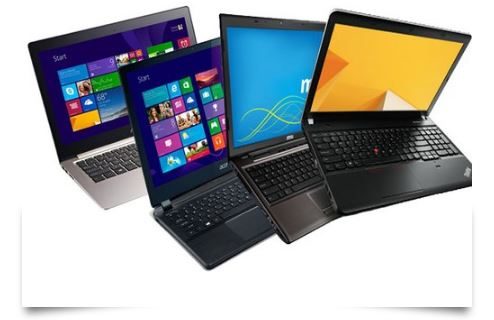When it comes to equipping a business with computers, there’s a significant decision to make: should you buy them or rent them? Both purchasing and renting computers come with their own sets of benefits and drawbacks, particularly in terms of cost and flexibility. This blog will break down these two options to help you determine which is more suited to your business needs, budget, and goals.
1. Upfront Costs: Buying vs. Renting
Buying
Purchasing computers requires a considerable upfront investment. From high-performance desktops to portable laptops, buying the latest models can strain a company’s budget, especially for small businesses or startups. While purchasing provides a long-term solution, the initial expense may not be feasible for businesses with tight cash flow.
Renting
Renting computers requires significantly lower upfront costs. You can access the latest models without the hefty initial expenditure, making it an attractive option for businesses that need high-quality equipment without a large investment. Renting is typically structured with affordable monthly fees, allowing for predictable budgeting.
2. Maintenance and Support Costs
Buying
When you purchase computers, maintenance and support are typically up to you, unless you invest in extended warranties or service plans. Over time, repair and upgrade costs can add up, especially if your business is growing or technology requirements change. Plus, downtime from repairs can disrupt your workflow if you don’t have replacement devices on hand.
Renting
Most computer rental agreements include basic maintenance and support. Rental providers often offer troubleshooting and replacement options, minimizing your downtime in case of equipment failure. This level of support can reduce stress, as you’re less likely to incur unexpected repair costs.
3. Technology Upgrades
Buying
In a rapidly evolving tech landscape, staying current can be costly. Purchased computers may become obsolete within a few years, requiring businesses to buy new equipment to keep up with the latest software or performance demands. This results in ongoing expenses as technology advances.
Renting
Renting offers a simple solution for businesses looking to stay technologically updated. Most rental providers allow you to upgrade your equipment with little hassle, often at the end of a rental term. This gives you the flexibility to access newer, more powerful models without the burden of reselling or discarding outdated equipment.
4. Long-Term Financial Impact
Buying
Purchasing computers may be more cost-effective over the long term. After the initial investment, you own the equipment and can use it without recurring payments. For established businesses with stable technology needs, this approach might make financial sense. However, it’s important to consider depreciation, which reduces the resale value of your equipment over time.
Renting
Renting computers, while more affordable in the short term, could end up costing more than purchasing over several years. However, for businesses with fluctuating needs, such as seasonal staff or temporary projects, renting provides valuable flexibility. Rather than committing to a depreciating asset, you can adjust your equipment needs and avoid sunk costs on underused machines.
5. Flexibility for Changing Needs
Buying
Purchasing computers is best for businesses with stable, predictable needs. However, if your business scales quickly or requires varied setups for different projects, buying can become limiting, as you may need to buy additional equipment or upgrade frequently.
Renting
Renting provides flexibility that buying can’t match. Rental agreements can often be customized, making it easy to add or reduce the number of computers based on project demands. For growing or project-based businesses, renting allows you to scale up or down without long-term commitments.
6. Tax Benefits
Buying
Purchased computers may be depreciated as assets over several years, offering some tax relief. However, depreciation schedules can be complex, and the long-term tax benefits vary based on the equipment’s lifespan and your tax situation.
Renting
Rentals are generally tax-deductible as operating expenses, offering an immediate deduction that can improve your cash flow. This deduction can be advantageous for businesses looking to optimize their tax strategy and reduce yearly taxable income.
Conclusion: Which is Better for Your Business?
In deciding between buying and renting computers, consider your business’s financial situation, technological needs, and flexibility requirements. Buying may suit companies with stable operations and predictable needs, offering long-term cost benefits. Conversely, renting is ideal for businesses prioritizing flexibility, minimizing upfront expenses, and staying current with technology trends.
For many small to mid-sized businesses, a hybrid approach might be the most effective: purchasing core equipment while renting additional computers for short-term projects or seasonal expansions. This approach provides stability without sacrificing adaptability, allowing you to invest wisely in technology while responding to changing needs.
If you’re considering computer rentals in Zirakpur for your business, contact Tricity Computer Service at +91-7814-622-624 to explore flexible rental plans that meet your specific requirements. Whether you need computers for a short-term project or a long-term solution, renting could be the smart, cost-effective choice for your business.












